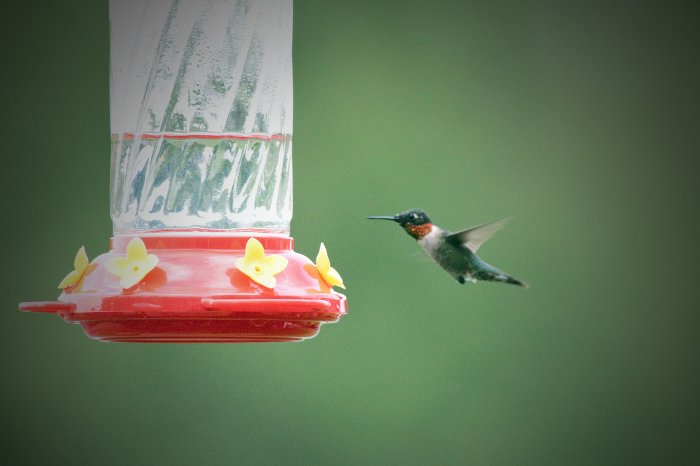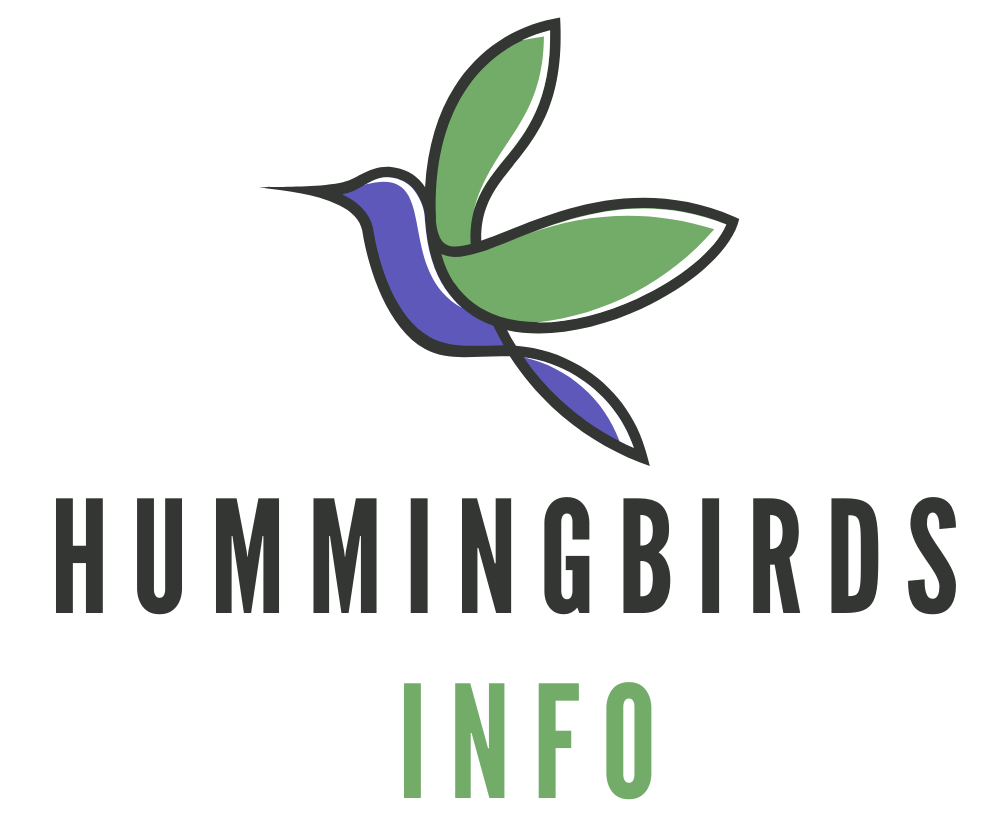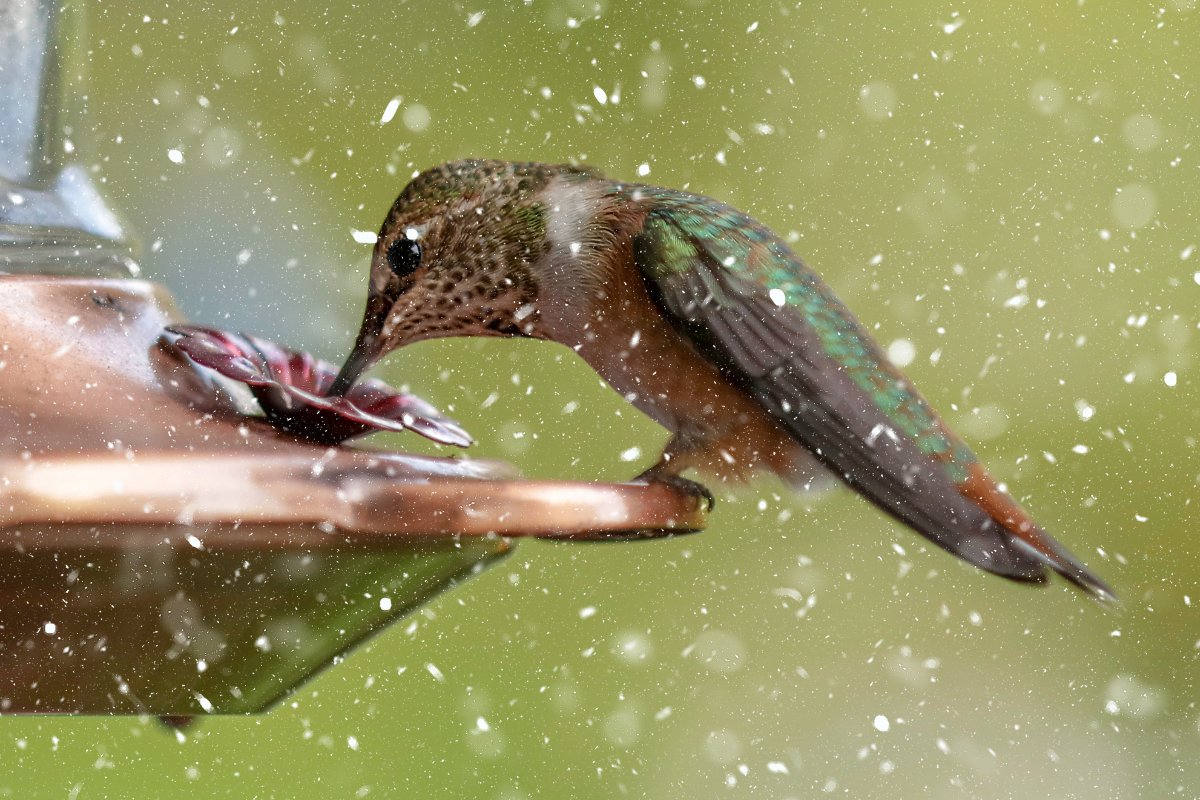Can hummingbirds drink cold nectar? Check out this article and find out.
Hummingbirds are really unique humming creatures, so we shouldn’t be surprised why they have received so much people’s sympathy.
If you are one of those who just this year decided to join us in this hobby, we first want to congratulate you, and then say that we completely understand why you have so many questions that are simply crying out for answers. You certainly want to give them everything in your power so that they live long, healthy, and happy life.
Many birders don’t hesitate to put nectar in feeders to bring these beautiful little creatures into their yards. However, with the long and cold winter days ahead of us, we can’t help but ask ourselves the question, can hummingbirds drink cold nectar? Therefore, if you are struggling with the same thing, stay here and find out.
Is Nectar Sensitive To Low Temperatures?
It is very easy to know the answer to this question when you are familiar with the two basic ingredients we use to make nectar. However, it is not out of place to devote a few sentences to this topic as well, given that a lot of beginners have been visiting here lately.
For those who don’t know, you don’t have to incur any additional costs if you want to fill your backyard feeders. Namely, you can make your own DIY nectar using two basic kitchen staples, i.e. sugar and boiled water.
The thing is that water freezes when the temperature drops, and since dried nectar is made from 1 part sugar and 4 parts water, you can assume that as soon as the temperature drops, the water will go from liquid to solid, i.e. the nectar will freeze.

Does Hummingbird Nectar Evaporate?
Yes, nectar can evaporate. However, if you do not serve too much at once, but put a moderate amount of nectar in the feeders that these birds can eat within a day or two, you will avoid not only its freezing but also its evaporation.
Evaporation occurs most often in summer with higher temperatures, but it is not exclusive that it will not happen in winter as well. Now that you know that it can freeze, that is, its temperature can be extremely low, let’s find out the answer to the question “can hummingbirds drink cold nectar”.
Click Here to Get Info About:
Can Hummingbirds Drink Cold Nectar?
If you ever decide to prepare nectar at home and fill your garden feeder with it, know that its main purpose is to mimic in every way the natural nectar found in flowers, plants, and trees.
So, what about hummingbird frozen drink, can hummingbirds drink cold sugar water? Without further ado, if you are wondering if these birds can swallow cold as well as lukewarm nectar with equal ease, the answer to this question is yes.
Their physique won’t hinder them in this. Also, keep in mind that a hungry hummingbird will eat anything in its path without a second thought. Namely, if he is very hungry, he is on the verge of death, and accordingly, it is quite clear that he will feast on cold nectar as the most delicious thing he has tasted in his life.
Hummingbird Feeder Heater for Winter Outdoors, Heated Hummingbird Feeders
Can Hummingbirds Drink Cold Sugar Water without Consequences?
Now that you know the answer to the question “can a hummingbird drink cold nectar”, it’s time to find out if regular consumption of cold nectar can have negative consequences. Well, let’s go into details.
In short, these creatures are very sensitive to temperature fluctuations, and for this very reason, it is not desirable for them to regularly consume nectar whose temperature is not close to that found in nature.
As with everything else, there are conflicting opinions on this topic. Some people, not necessarily just scientists, but also experienced birders and enthusiasts, believe that these birds may get hypothermia from drinking cold nectar in cold late fall or early spring mornings. We mustn’t forget to mention that the Audubon Society always emphasizes that drinking cold nectar could cold-stun hummingbirds. Another common opinion emphasizes that there is no scientific study to confirm that cold nectar leads to hypothermia in these jewel-like birds.
So after all, can hummingbirds drink cold nectar? If you ask our opinion, we advise you to avoid serving this type of nectar. You know what they say, better to be safe than sorry. For all those wondering why this is our opinion, here is the explanation.
It has been proven that most small hummers are endothermic, which basically means that they can maintain a constant internal body temperature through their metabolic processes. Confused? There is an even simpler explanation. It is vital for endotherms to heat the food they consume to their body temperature.
For example, if you heat one amount of nectar to a significantly higher temperature and another to a significantly lower temperature, those hummingbirds that feed on nectar at a lower temperature will have an increased metabolic rate.
Take Out Time to Also Read: How To Attract Hummingbirds In Illinois? 3 Crucial Things To Consider
Where To Hang Hummingbird Feeder Sun Or Shade?
You don’t need to be an expert to know that location is key if you want to avoid nectar spoilage, freezing and evaporation. If you want to prevent this sweet, divine liquid from spoiling in any way, we advise you to place your feeder in a place that has a mixture of sun and shade during the day, more precisely, the most ideal location is that which is shaded during the peak heat of the afternoon.
To Round-Up – Can Hummingbirds Drink Cold Nectar
These little creatures are known as big eaters. Did you know that a week before they begin their great, seasonal migration, they have to put on almost double their weight just to make it to their destination alive? Unbelievable, right?
Well, let’s conclude, can hummingbirds drink cold nectar? These creatures are very sensitive to temperature fluctuations, and for this very reason, it is not desirable for them to regularly consume nectar whose temperature is not close to that found in nature. They might even die!
Have questions? Tell us more below.
Recommended: Homemade Nectar For Hummingbirds Recipe With Only 2 Basic Ingredients


